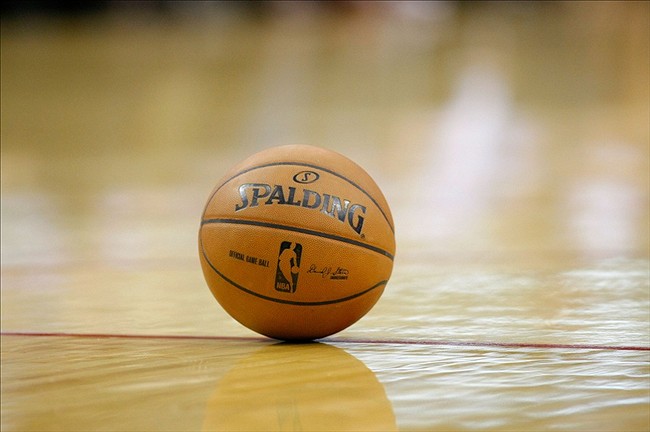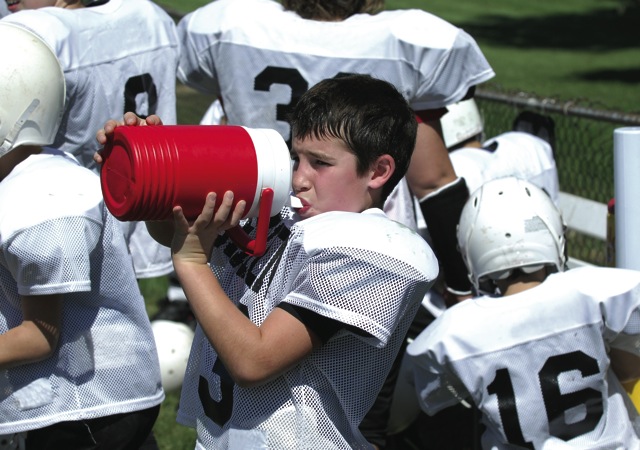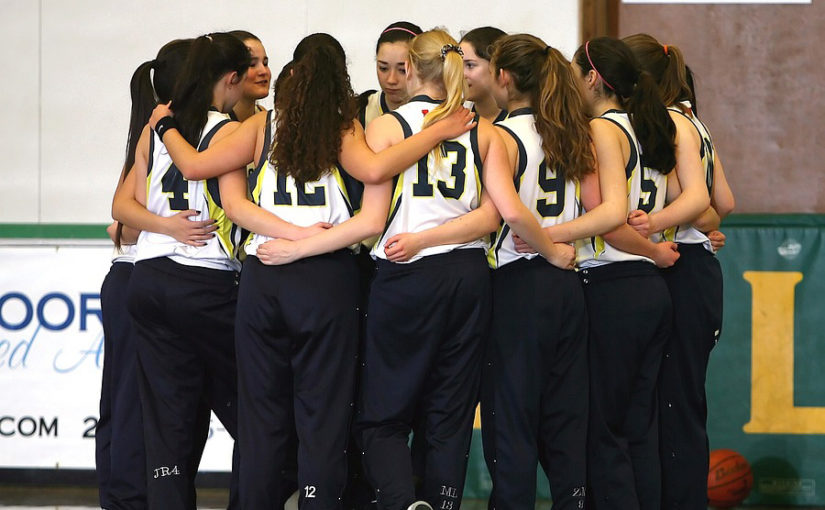Longtime High School Basketball Coaches A Rarity
But things have changed. At the start of the 2011-12 season, 10 of the 34 Central Region teams had hired new coaches.
“Nowadays, jobs come open more, Freeman’s Larry Parpart said.
With coaches coming and going more often, the lifelong high school basketball coach may be a dying breed.
Only four coaches in the Central Region have held their current job for 20 years or more: Bo Jones Sr. of Huguenot (33), George Lancaster of Highland Springs (33), Larry Parpart of Douglas Freeman (27) and Eddie Goss of Thomas Dale (24).
Yes, there has been a great deal of change, Lancaster said. There are fewer coaches who have continued to dedicate their lives on a … high school basis.”
So where are they going? The veterans offered a number of opinions: Parents and students have become more of a headache. School finances have gotten worse. And opportunities for advancement are greater than before.
Less autonomy
Parents and administrators don’t let coaches get away with as much as they used to. Coaches used to be able to motivate their kids however they wanted. They could yell at their players, they could run them up and down the court all day and they could even paddle their players to motivate them.
Now, coaches are on a much tighter leash. Earlier this month, a coach in New Hampshire was fired for cursing at his players.
“You have to understand, parents of today aren’t like parents of yesterday, said Jones, Huguenot’s head man. They used to leave it all to the coach.”
Parents often complain, too. Why isn’t my son getting more playing time? Why did my son get cut?
“Coaches get burned out too quickly when they have to spend more time putting out fires with parents rather than coach, Henrico’s Vance Harmon said. He tries to establish a relationship with parents as early as possible. Keeping lines of communication open helps keep problems from flaring up.
In the end, Jones understands why parents are so vocal about their kids: Parents love their children, he said.
But it’s not just parents who are a headache. It’s kids, too.
Kids are harder to coach than they used to be, Goss said. They watch Youtube highlight videos and believe that’s what basketball is all about, he added. They watch Kobe Bryant, LeBron James or Blake Griffin dunk the ball, and they think they know basketball.
Kids today, they don’t understand the game, Goss said. He believes watching college games is more educational, but the NBA is more popular among young players.
A coach and a teacher
A coach is more likely to stay at his job longer if he is a teacher there, too, Harmon said. To keep a program running smoothly, there’s an unbelievable” number of issues to address on a daily basis. If the coach isn’t in the school building, things break down quicker.
But these days, fewer coaches are teachers at the school where they coach. School districts often can’t afford to hire him. In happier financial times, if there was an opening for a head basketball coach, the school would carve out a spot in the faculty for him.
Now that schools are under tighter financial constraints, they may hire him as a coach only. He may teach at another school, or he may not work in education at all.
Then there’s the AAU effect. AAU, which stands for Amateur Athletic Union, but has become an umbrella term for club sports, draws coaches who are more interested in basketball as a business or a hobby and less interested in using basketball as an educational tool.
AAU coaches don’t have to enforce grades, and they don’t have to discipline their players. They just teach basketball. In high school, it doesn’t work like that, Harmon said. You have to be an educator.
“It’s more than just showing up and rolling a ball out, Harmon said. It’s all about helping the kids.”
And when some coaches realize that, they realize they’re not interested.
Advancement
But for all the negative reasons why coaches are putting down the clipboard, there are a few good ones, too.
Coaches are prime candidates to become athletic directors. Chuck Thomas at L.C. Bird, Bill Lawson at Petersburg and Bill Russell at Prince George are among those who have taken a promotion from basketball coach to AD.
Others have moved on to the college ranks. Rally Axselle coached at Mills Godwin and Deep Run before going to Hampden-Sydney. Chip McCoull led the program at Matoaca before becoming an assistant at VCU. He’s since returned to high schools and is now at Dinwiddie.
Dave Robbins, who became one of the area’s most successful college coaches by winning three national championships at Virginia Union, used to call Thomas Jefferson home.
Lancaster believes the 10 coaching changes this season were an anomaly. The Central Region won’t continue to see such drastic change every year.
One reason why, he said, is because some of the vacancies that were filled were at the region’s best programs, such as Petersburg, which hired Rick Hite, or L.C. Bird, which chose Troy Manns, the former Hanover coach.
Those coaches landed the most coveted jobs in the region, Lancaster said. So they won’t let them go any time soon.
Longtime Coaches In High School A Rarity
Richmond Times Dispatch, Eric Kolenich
http://www2.timesdispatch.com/sports/high-school-sports/2012/feb/20/tdsport01-profession-in-motion-ar-1701671/
There was a time when coaching vacancies in high school boys basketball were rare. Maybe two or three coaching jobs opened per season.
But things have changed. At the start of the 2011-12 season, 10 of the 34 Central Region teams had hired new coaches.
“Nowadays, jobs come open more, Freeman’s Larry Parpart said.
With coaches coming and going more often, the lifelong high school basketball coach may be a dying breed.
Only four coaches in the Central Region have held their current job for 20 years or more: Bo Jones Sr. of Huguenot (33), George Lancaster of Highland Springs (33), Larry Parpart of Douglas Freeman (27) and Eddie Goss of Thomas Dale (24).
Yes, there has been a great deal of change, Lancaster said. There are fewer coaches who have continued to dedicate their lives on a … high school basis.”
So where are they going? The veterans offered a number of opinions: Parents and students have become more of a headache. School finances have gotten worse. And opportunities for advancement are greater than before.
Less autonomy
Parents and administrators don’t let coaches get away with as much as they used to. Coaches used to be able to motivate their kids however they wanted. They could yell at their players, they could run them up and down the court all day and they could even paddle their players to motivate them.
Now, coaches are on a much tighter leash. Earlier this month, a coach in New Hampshire was fired for cursing at his players.
“You have to understand, parents of today aren’t like parents of yesterday, said Jones, Huguenot’s head man. They used to leave it all to the coach.”
Parents often complain, too. Why isn’t my son getting more playing time? Why did my son get cut?
“Coaches get burned out too quickly when they have to spend more time putting out fires with parents rather than coach, Henrico’s Vance Harmon said. He tries to establish a relationship with parents as early as possible. Keeping lines of communication open helps keep problems from flaring up.
In the end, Jones understands why parents are so vocal about their kids: Parents love their children, he said.
But it’s not just parents who are a headache. It’s kids, too.
Kids are harder to coach than they used to be, Goss said. They watch Youtube highlight videos and believe that’s what basketball is all about, he added. They watch Kobe Bryant, LeBron James or Blake Griffin dunk the ball, and they think they know basketball.
Kids today, they don’t understand the game, Goss said. He believes watching college games is more educational, but the NBA is more popular among young players.
A coach and a teacher
A coach is more likely to stay at his job longer if he is a teacher there, too, Harmon said. To keep a program running smoothly, there’s an unbelievable” number of issues to address on a daily basis. If the coach isn’t in the school building, things break down quicker.
But these days, fewer coaches are teachers at the school where they coach. School districts often can’t afford to hire him. In happier financial times, if there was an opening for a head basketball coach, the school would carve out a spot in the faculty for him.
Now that schools are under tighter financial constraints, they may hire him as a coach only. He may teach at another school, or he may not work in education at all.
Then there’s the AAU effect. AAU, which stands for Amateur Athletic Union, but has become an umbrella term for club sports, draws coaches who are more interested in basketball as a business or a hobby and less interested in using basketball as an educational tool.
AAU coaches don’t have to enforce grades, and they don’t have to discipline their players. They just teach basketball. In high school, it doesn’t work like that, Harmon said. You have to be an educator.
“It’s more than just showing up and rolling a ball out, Harmon said. It’s all about helping the kids.”
And when some coaches realize that, they realize they’re not interested.
Advancement
But for all the negative reasons why coaches are putting down the clipboard, there are a few good ones, too.
Coaches are prime candidates to become athletic directors. Chuck Thomas at L.C. Bird, Bill Lawson at Petersburg and Bill Russell at Prince George are among those who have taken a promotion from basketball coach to AD.
Others have moved on to the college ranks. Rally Axselle coached at Mills Godwin and Deep Run before going to Hampden-Sydney. Chip McCoull led the program at Matoaca before becoming an assistant at VCU. He’s since returned to high schools and is now at Dinwiddie.
Dave Robbins, who became one of the area’s most successful college coaches by winning three national championships at Virginia Union, used to call Thomas Jefferson home.
Lancaster believes the 10 coaching changes this season were an anomaly. The Central Region won’t continue to see such drastic change every year.
One reason why, he said, is because some of the vacancies that were filled were at the region’s best programs, such as Petersburg, which hired Rick Hite, or L.C. Bird, which chose Troy Manns, the former Hanover coach.
Those coaches landed the most coveted jobs in the region, Lancaster said. So they won’t let them go any time soon.












